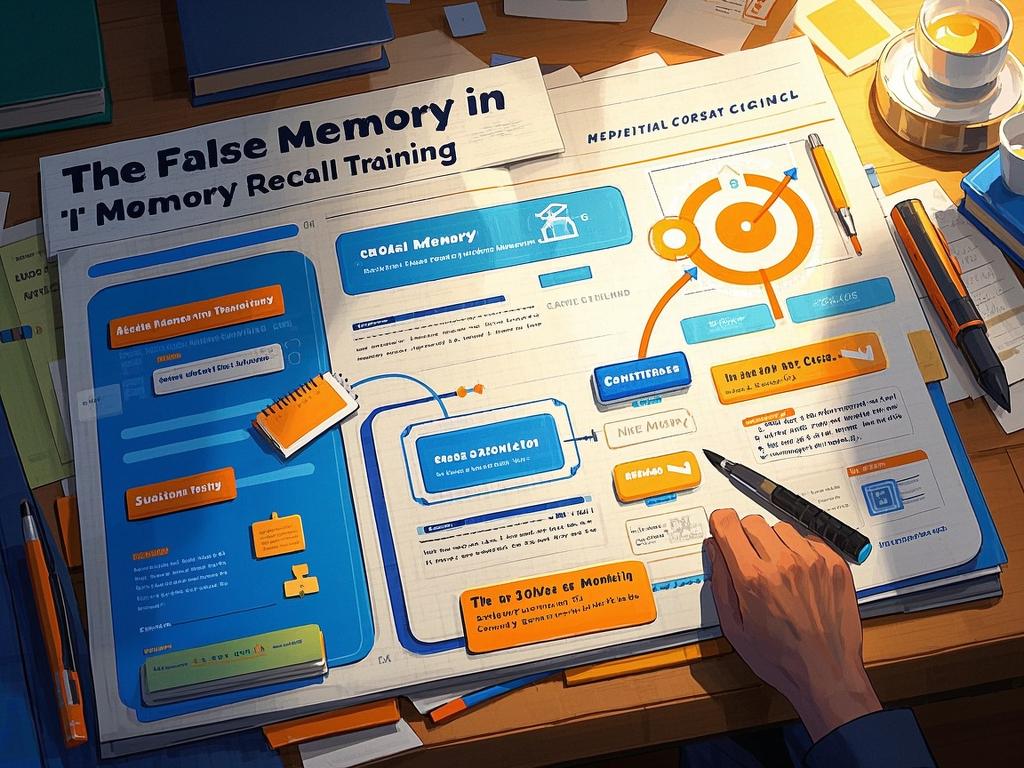
# The False Memory in Memory Recall Training: Enhancing Accuracy!
Memory, that ever-elusive yet fundamental aspect of our cognitive existence, has long been a playground for psychologists and cognitive scientists. We all rely on our memories to navigate the complexities of daily life, from recalling where we left our keys to reminiscing about childhood vacations. But what if our memories aren't as reliable as we'd like to think? Enter the fascinating realm of false memories, a phenomenon that challenges our understanding of memory recall and has significant implications for memory recall training.
False memories are those that seem vivid and real but are, in fact, inaccurate or completely fabricated. They can be induced through a variety of means, such as suggestive questioning, misleading information, or even imagination. One classic example is the misinformation effect, where exposure to false information after an event can distort one's memory of that event. Imagine witnessing a car accident and then being asked leading questions about the color of the car involved. The answers to these questions can unconsciously blend with your original memory, creating a false recollection.
The prevalence of false memories is quite astonishing. Research has shown that a significant percentage of people can be induced to form false memories under certain conditions. In some studies, up to 40% of participants have reported having false memories after being exposed to misleading information. These false memories can be as detailed and convincing as real ones, making it difficult for individuals to distinguish between what actually happened and what they've been led to believe.
So, how does this relate to memory recall training? Well, if false memories can be so easily implanted, it raises questions about the accuracy of our memories during training. Memory recall training is designed to improve our ability to remember information accurately, whether it's for academic purposes, professional development, or everyday life. But if false memories can sneak in, it could undermine the effectiveness of this training.
Let's take a closer look at some of the factors that contribute to false memories in the context of memory recall training. One factor is the power of suggestion. Trainers may inadvertently introduce false information or use leading questions during the training process, leading participants to form inaccurate memories. For example, a trainer might say, "Remember, that important detail we discussed earlier was related to this specific theory." This seemingly innocent statement could subtly influence participants to incorporate this false association into their memories.
Another factor is the role of imagination. When we engage in memory recall training, we often try to visualize the information we're trying to remember. However, this imagination can sometimes lead to the creation of false memories. If we imagine a particular scenario too vividly, our brains may start to fill in the gaps with details that didn't actually occur, creating a false memory of the event.
But here's the good news: there are ways to enhance the accuracy of memory recall training and minimize the occurrence of false memories. One approach is to use multiple encoding strategies. Instead of relying solely on one method of learning, such as rote memorization, trainers can encourage participants to use a combination of visual, auditory, and semantic encoding techniques. This multisensory approach helps to create more robust memory traces that are less likely to be distorted by false information.
For example, if participants are trying to remember a historical event, they could create a mental image of the scene, listen to a podcast about it, and read relevant historical documents. By engaging multiple senses, they are more likely to remember the information accurately and be less susceptible to false memories.
Another important aspect is the use of retrieval practice. Regularly testing oneself on the information being learned helps to strengthen memory traces and improve recall accuracy. Trainers can incorporate quizzes, flashcards, and practice exams into the training curriculum to encourage participants to actively retrieve the information from their memories. This not only helps to identify any areas where false memories may be forming but also reinforces the correct information.
Furthermore, it's crucial to create a supportive and error - tolerant learning environment. Participants should feel comfortable admitting when they're unsure about a memory or when they think they may have made a mistake. Trainers can encourage open discussion and reflection, allowing participants to correct any false memories that may have arisen.
Now, let's talk about the implications of false memories in real - world scenarios. In legal settings, false memories can have serious consequences. Eyewitness testimony, which is often relied upon in court cases, can be influenced by false memories. Innocent people may be wrongly convicted based on inaccurate eyewitness accounts. Memory recall training for law enforcement officers and jurors is, therefore, of utmost importance to ensure the reliability of eyewitness testimony.
In educational institutions, false memories can also disrupt the learning process. Students may have false memories of what was taught in class, leading to misunderstandings and poor academic performance. By implementing effective memory recall training techniques, educators can help students learn more accurately and retain information better.
In conclusion, false memories are a significant challenge in memory recall training. However, by understanding the factors that contribute to their formation and implementing strategies to enhance accuracy, we can improve the effectiveness of memory recall training. Whether it's in the classroom, the courtroom, or our daily lives, accurate memory recall is essential. So, let's embrace the science of memory and work towards enhancing our ability to remember the truth, not the false memories that can so easily cloud our cognitive landscape. Are you ready to take your memory recall skills to the next level and banish those pesky false memories? Let's find out together!

